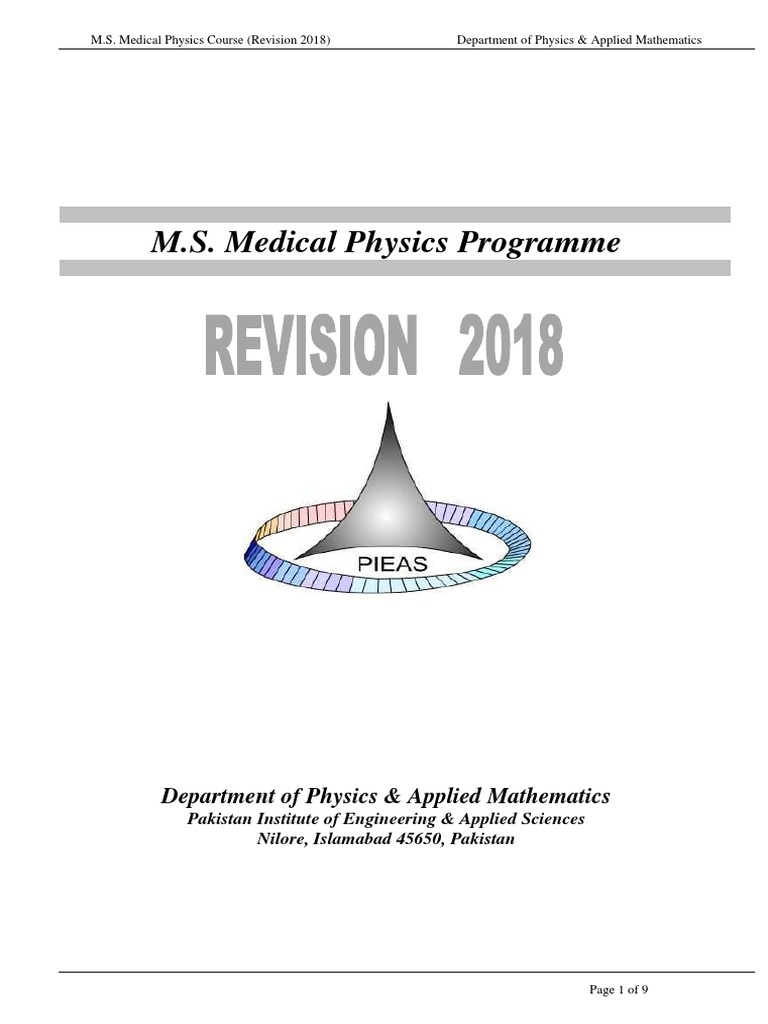Embarking on the journey toward an MD/PhD in medical physics is a profound commitment, necessitating both intellectual rigor and emotional resilience. This dual degree amalgamates the complexities of medical education with the analytical depth of scientific inquiry, positioning graduates to play a pivotal role in advancing healthcare through physics-based innovations. Preparing for this path requires a multifaceted approach, encompassing academic readiness, research experience, and personal development. Below is an extensive guide tailored to aspiring candidates.
1. Understanding the Landscape of Medical Physics
Before diving into the preparation process, it is crucial to comprehend the intricate relationship between medicine and physics. Medical physics applies the principles and methodologies of physics to the diagnosis and treatment of human diseases. This interdisciplinary field involves radiation therapy, medical imaging, and radiation protection, among other domains. By understanding these elements, candidates can better appreciate the significance of their studies and the impact they can make in healthcare.
2. Academic Preparations
A solid academic foundation is paramount. Candidates should typically complete an undergraduate degree in physics, engineering, or a closely related field. Strong performance in advanced coursework in mathematics, biology, and chemistry is essential. Courses in medical imaging systems, thermodynamics, and electromagnetic theory will be particularly beneficial. Furthermore, gaining exposure to biostatistics and clinical research methods provides a substantial advantage.
Beyond coursework, the GPA holds substantial weight in admissions processes. Maintaining a competitive GPA of 3.5 or higher can enhance one’s candidacy significantly. Regardless of the major, aspirants should cultivate a rigorous approach to academics and seek opportunities for interdisciplinary learning.
3. Research Experience
Research forms the backbone of the MD/PhD trajectory. Engaging in research during undergraduate studies not only bolsters one’s résumé but also fosters essential skills such as critical thinking, problem-solving, and technical proficiency. Aspiring candidates should actively seek research assistant positions in laboratories focused on medical physics, radiobiology, or related areas. Participation in projects that yield publications or presentations at conferences can substantially enrich an applicant’s portfolio.
Moreover, consider pursuing summer research opportunities or internships, which often provide immersive experiences and mentorship. Building relationships with faculty members in medical physics can lead to valuable letters of recommendation and insights into potential graduate programs.
4. Clinical Exposure
Understanding the clinical environment is integral to the MD/PhD experience. Candidates should seek opportunities to volunteer or work in healthcare settings to familiarize themselves with the medical operational framework and patient interactions. This exposure not only enhances one’s candidacy but also helps to align one’s scientific inquiry with patient-centered outcomes. Shadowing physicians or medical physicists can provide firsthand perspectives on how physics intersects with clinical practice.
5. Standardized Tests and Application Strategy
Success in standardized exams such as the Graduate Record Examination (GRE) and the Medical College Admission Test (MCAT) is crucial for admissions. Candidates should allocate ample time for preparation, utilizing dedicated study resources and taking practice exams. A balanced score across all sections will reflect a well-rounded aptitude, which is instrumental for dual-degree programs.
When crafting applications, clear articulation of one’s motivations for pursuing an MD/PhD is vital. Personal statements should weave together narratives of academic interests, research experiences, and clinical aspirations. It’s essential to convey a vision for how one intends to bridge the gap between medical practice and scientific research.
6. Networking and Mentorship
Engaging with the professional community can provide invaluable insights and guidance. Attending conferences in medical physics and related interdisciplinary fields facilitates network-building with seasoned professionals. Establishing mentorship relationships with individuals who are already in MD/PhD programs or working in medical physics can offer insights into overcoming challenges and navigating the complexities of dual-degree studies.
Joining professional organizations such as the American Association of Physicists in Medicine (AAPM) can also provide resources for career development as well as opportunities for networking and mentorship.
7. Personal Development
The journey toward an MD/PhD is as challenging emotionally as it is intellectually. Candidates should cultivate resilience and self-care practices that promote mental well-being. Mindfulness techniques, stress management strategies, and time management will be beneficial not only during the application process but throughout one’s academic journey.
Recognizing personal strengths and areas for improvement will aid in building a robust skill set that aligns with the demands of both medical and research environments. Engaging in extracurricular activities can also foster a well-rounded character, showcasing teamwork, leadership, and community engagement.
8. Considerations for the Future
Finally, it is prudent for prospective MD/PhD candidates to contemplate their long-term career goals. The potential pathways after earning this dual degree are diverse and can lead to roles in academia, clinical practice, or industry. Understanding the various career trajectories can provide motivation during challenging times and clarify the focus of one’s research interests.
In conclusion, the journey toward obtaining an MD/PhD in medical physics is an ambitious endeavor that requires dedication, foresight, and solid preparation. By addressing the academic, research, clinical, and personal dimensions of this pursuit, candidates can equip themselves with the tools necessary for success in this unique and rewarding field. Each step taken toward preparing for this career will be an investment in one’s future and in the transformative potential of medical physics in patient care.












